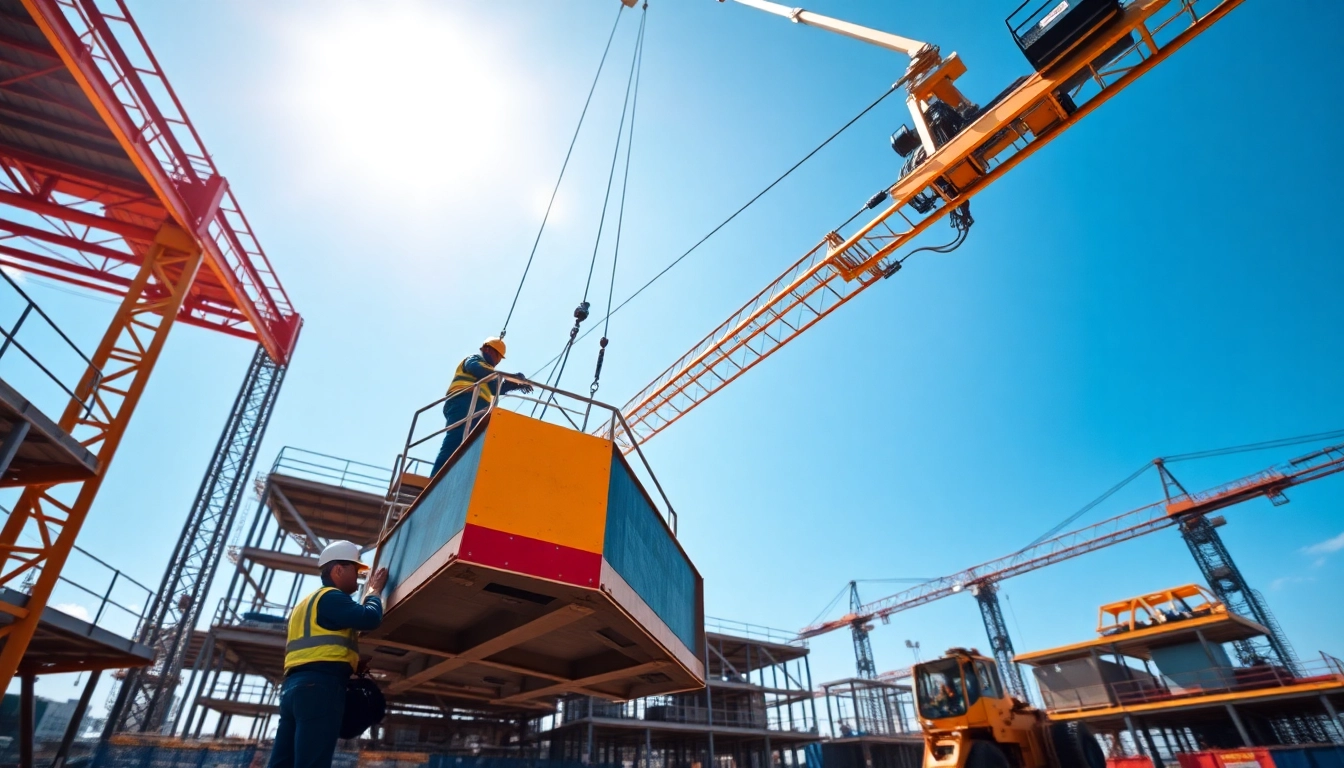Understanding the Level 5 NVQ Diploma in Controlling Lifting Operations
Overview of the Qualification
The Level 5 NVQ Diploma in Controlling Lifting Operations is a pivotal qualification designed for individuals who aspire to manage lifting operations safely and effectively within various sectors, particularly in construction. This qualification not only validates a candidate’s skills but also emphasizes the critical importance of safety and best practices in lifting scenarios. It involves rigorous assessment methods to ensure that candidates can apply their knowledge in real-world situations, thereby demonstrating competence and expertise.
Importance of Safety in Lifting Operations
The significance of safety in lifting operations cannot be overstated. According to the HSE (Health and Safety Executive), a considerable percentage of workplace injuries arise from improper lifting practices. The Level 5 NVQ Diploma provides training on safety protocols, risk assessment, and hazard management. Candidates are taught to identify potential hazards during lifting operations and to implement strategies to mitigate these risks effectively. By enhancing awareness of safety measures, the qualification plays a critical role in reducing accidents and ensuring a safe working environment.
Key Skills Developed through the Diploma
This diploma encompasses a wide array of skills that are essential for effective lifting operations management:
- Planning Lifting Operations: Candidates learn to develop comprehensive lift plans that include the assessment of environments, machinery, and workforce capabilities.
- Risk Assessment and Management: Understanding how to conduct detailed risk assessments to ensure that all factors affecting safety are considered.
- Effective Communication: Fostering effective communication skills necessary for coordinating with team members and stakeholders during lifting operations.
- Problem-Solving: Cultivating the ability to troubleshoot and resolve issues that may arise during lifting processes.
- Compliance with Regulations: Gaining knowledge about relevant legal and regulatory frameworks to ensure that operations adhere to industry standards.
Answering Common Questions on NVQ Level 5 Assessments
Typical Questions and Expectations
- Incident reporting procedures.
- Techniques for ensuring the safety of personnel and equipment during lifting tasks.
- Identification of suitable lifting equipment for specific tasks.
- Assessment of the stability of loads.
Candidates should familiarize themselves with the assessment criteria and format to better prepare for the exam and practical evaluations.
Best Practices for Structuring Your Answers
Effective answer structuring is crucial in achieving higher marks during assessments. Here are some best practices:
- Read the Question Carefully: Ensure you fully understand what is being asked before attempting to answer.
- Use Bullet Points for Clarity: When appropriate, utilize bullet points or numbered lists to enhance readability.
- Be Concise: Aim for clarity and brevity, avoiding unnecessary jargon.
- Reference Relevant Standards: Use industry standards or regulations to support your answers.
Utilizing Examples Effectively in Examinations
Incorporating real-world examples can greatly enhance your answers. When possible, draw on your own experiences or case studies relevant to lifting operations. This not only demonstrates your understanding but also shows the ability to apply theoretical knowledge in practical settings.
Preparation Strategies for Success
Creating a Study Schedule
A well-structured study schedule can significantly improve your preparation. Here’s how to create an effective plan:
- Assess Your Current Knowledge: Identify areas of strength and weakness to allocate study time effectively.
- Set Realistic Goals: Break down your study topics into manageable units with specific objectives.
- Allocate Time for Review: Include regular review sessions in your schedule to reinforce learning.
- Utilize Tools and Resources: Utilize available study materials, including textbooks, online resources, and level 5 nvq diploma in controlling lifting operations answers.
Using Resources for Practice
Practice is essential in preparing for the Level 5 NVQ Diploma assessments. Utilize various resources such as:
- Sample assessment papers to familiarize yourself with the question format.
- Study groups where you can collaborate and discuss topics.
- Online forums or platforms for additional support and resources.
Mock Assessments and Their Importance
Mock assessments are a vital part of your preparation strategy. They provide an opportunity to:
- Simulate testing conditions, helping to alleviate anxiety.
- Gauge your understanding of the material.
- Identify gaps in knowledge that need to be addressed before the actual assessment.
Common Mistakes to Avoid in NVQ Level 5 Answers
Misunderstanding Questions
One of the most common pitfalls involves misinterpreting the questions being posed. Take your time to read the questions thoroughly before responding. Look for keywords and phrases that indicate what the examiner is looking for.
Neglecting Evidence-Based Responses
Answers should always be supported by evidence. This can include personal experiences, data, or references to industry standards. Failing to do so can weaken your responses and affect your overall grade.
Failing to Manage Exam Time Effectively
Time management during exams is critical. Practice pacing yourself while answering questions. Allocate time according to the marks available for each question, ensuring you leave enough time for revision and checking your work before submission.
Pathways After Completing the Diploma
Further Qualifications and Career Progression
Completing the Level 5 NVQ Diploma opens numerous avenues for further development. Graduates may consider pursuing advanced qualifications in management, health and safety, or specialized areas within lifting operations. Additionally, this diploma positions individuals favorably for promotion to more senior roles within the sector, such as site manager or safety officer.
The Role of Continuous Professional Development
In an industry characterized by constant change, ongoing professional development is vital. Engaging in workshops, seminars, and industry conferences ensures you remain informed about the latest trends, technologies, and safety regulations in lifting operations.
Networking Opportunities within the Industry
Attending industry-related events and engaging with professional organizations provides invaluable networking opportunities. Building connections can lead to mentorship, job opportunities, and collaborations, which can further enhance your career trajectory.
